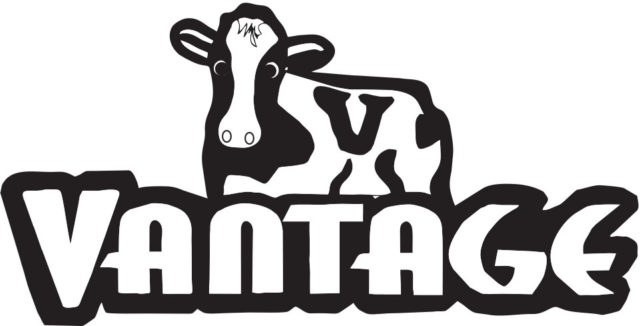Agriculture is cyclical. One year you make more money than ever expected, and then that year is followed by three with razor-thin margins. While agriculture is cyclical, your relationship with your lender shouldn't be. For your operation to survive the lean times and grow in the good times, you need a quality relationship with your lender – not a transactional one.
Read on for some tips from experienced lenders on how to build just that – a long-term relationship with your lender.
1. Communicate regularly and honestly
“A good lender relationship is like any good relationship in your life,” says Jerry Wroten, VP relationship manager with Zions Bank. “It has open and good lines of communication. Keep your lender somewhat regularly informed about what is happening on your farm, even if you aren’t actively working on a loan. Then, when the time comes to renew an operating line or start on a term note, we're ahead of the game.”
Regular communication is important, and honest regular communication is better. When things are strained, it’s tempting to want to exaggerate or underemphasize the problem. Allison Jenkins, a financial consultant who worked for a decade as a relationship manager at Northwest Farm Credit Services, says, “You’ve got to be upfront about your financial circumstances. Secrets don't benefit anyone – and we will probably find them out anyway. Being vulnerable in the situation goes a long way in building trust because your lender can’t help you if you don’t help them first.”
In the good times and the lean times, your lender will set expectations on how often they expect to hear from you, collect financials and visit your operation. However, Jenkins recommends setting your expectations too. She says, “Make a goal of how many times you want to talk to your lender in a growing season. Once a quarter? Once a month? How many times do you want to see them at your place? If it is important that your relationship manager visits you twice a year, tell them that. Setting communication expectations goes both ways. If you don't communicate expectations, your lender can't live up to them."
2. Share knowledge freely
Your lender should be a wealth of financial information, and they can help grow your business acumen through regular analysis and discussion. And the best ones are trusted advisers that you look to for advice before you make a big decision. However, that knowledge exchange should go both ways. Teach your lender about your farm and industry – it will benefit both of you.
Fewer lenders have significant connections to agriculture, and they are often looking to their customers to teach them. Wroten says, “My best customer relationships are ones where I can share financial or industry information with them, and they, in return, provide me agriculture knowledge or details about their industry, especially when I’m working with farmers who grow crops I’m unfamiliar with. The second part of that is simply being available – being available to visit their farm, their ranch, their operation, take those tours, take those phone calls and respond to those emails.”
This kind of exchange is even more important when working with an institution that may not focus on the ag industry. If your relationship manager understands your business and industry, they are better equipped to advocate for you internally for loan approval. And considering the industry holistically, more lenders who understand agriculture benefit farmers and ranchers everywhere.
3. Get picky about who you work with
Like Wroten says, “Building a lending relationship is like any relationship” – it’s OK to be picky about who you work with. When working with a relationship manager, Jenkins says, “If it's not a good fit, it’s not a good fit. There might be turnover at the bank or just a personality thing, but whatever it is, don't be afraid to speak up and see if there's somewhere else at that institution that might be a better fit. You are dealing with this person on intimate business issues; you need to know that you can get along and respect them.”
She goes on to say, “And borrowers should know that the inverse is also applicable. Many lenders have some choice in who their customers are. Do you like your lender and want to keep them? What are you doing to foster that relationship and build it so that it's mutually beneficial? If you're being difficult and untrustworthy, then they may have the option to transfer you to a different relationship manager, encourage you to seek other financing, or be less willing to go the extra mile for you to keep the financing that you have.”
Select the lending institution and then pick the relationship manager. Sometimes that happens in the inverse, and you stay loyal to your relationship manager regardless of their current institution – that’s when you know it's relationship-based lending.
4. Build relationships with more than just your relationship manager
When building a relationship with your lender, your relationship manager is your primary contact, but they are not always available or the best person to speak with, depending on your issue. There is often a team of folks who oversee your loans, and it’s important to work to build a relationship with them too.
Wroten says, “One of the things I try to do for my customers is sharing access to my team. I work with a credit officer and a specialist. I try to get them in front of my customers to provide more touchpoints. I want them to know it’s not just me, but they have a team working for them, working for their loans and working for their cause.” More relationships within your lending institutions mean more people on your team and more chances to maintain a long-term relationship regardless of internal turnover.
Your farm or ranch will go through the cycles of agricultural markets. And times can be challenging – you need a relationship with a lender to help weather those cycles. Wroten summarizes it, saying, “I don’t expect my customers to be financial experts. It’s my job to guide them through their financials, and their job is to raise a crop. While we work to achieve both those goals, I hope we can foster a relationship that works.”








